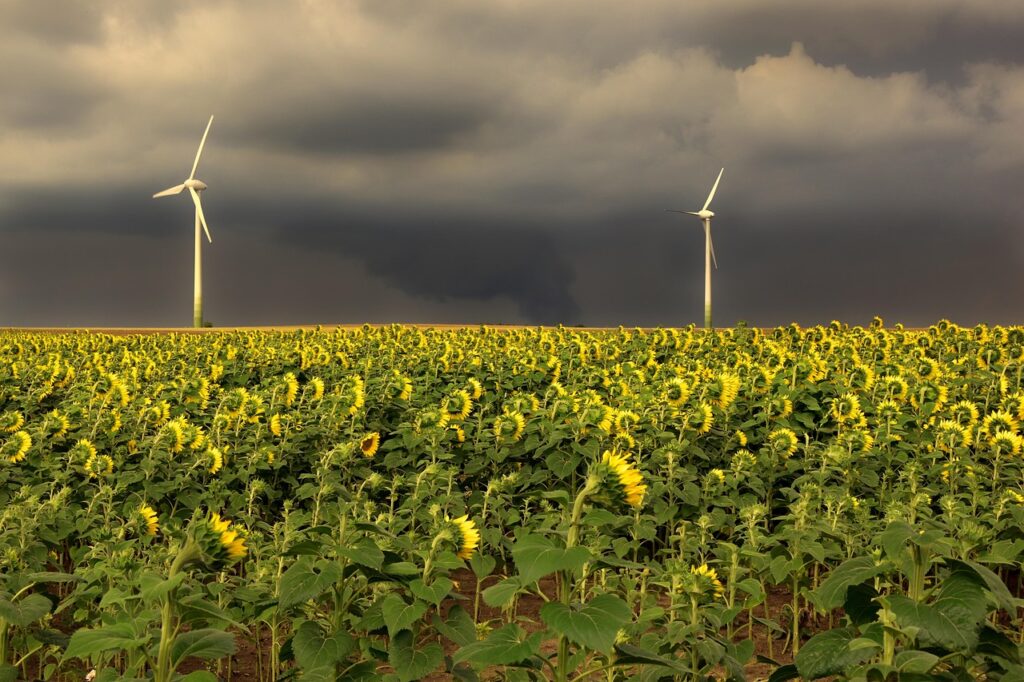After several long months of winter, the long-awaited arrival of spring is often accompanied by some weather worries of its own. In many parts of the country, severe weather peaks in March, April, and May, according to The Weather Channel. Tornadoes are most active in April, May, and June, followed by hurricane season from June through November. Add to that the fact that climate change is contributing to extreme weather throughout the globe, from wildfires to floods, heat waves, and drought. If you’re someone who frets over potential weather events, there’s no shortage of reasons to worry.
Like any fear or phobia, weather anxiety is mostly a problem when it starts to interfere with how you live your life. If you experience obsessive thoughts about potential storms or other weather events, sometimes inducing anxiety or panic, you may need to take steps to control your fears. That’s not to diminish the fact that many weather events are potentially dangerous, and you and your family should always be prepared, heed the advice of the experts, and respond accordingly. But when it comes to excessive worry and doomsday prep, the following tips may help you regain control.
- Be prepared. Know in advance where you, your family, and your pets will take shelter. Create a safety kit with any supplies you will need, and develop a plan for communicating with loved ones if you lose power and cell phone service. It’s also important to know how you will obtain weather warnings, whether it’s your local TV station, a phone app, outdoor warning sirens, or another community notification system.
- Get weather updates from trusted sources. In today’s social media environment, there are many ways to obtain weather information. Unfortunately, not all of it is trustworthy, and much of it tends to focus on the worst-case scenario as a way to grab your attention. This, of course, will only add fuel to your fears. Focus instead on official sources, such as the National Weather Service or the meteorologist on your local television station.
Planning is important, but what if it’s not enough to alleviate your fears? If you avoid places where bad weather could occur, or if you experience physical symptoms such as a rapid heartbeat, sweating, or shaking during a weather event, you may need to speak with a mental health professional. Here are a few things that could help in the meantime:
- Determine what triggers your fear. Do you obsessively check for weather updates? Do you have a specific fear of water, wind, or fire, for instance? Do particular behaviors cause your anxiety to spike?
- Practice relaxation techniques. Deep breathing and meditation can be used to calm you during the time leading up to a potential bad weather event and while one occurs. Learning these techniques in advance can better prepare you for the event.
- Distract yourself with other activities. Instead of focusing on the storm, try listening to music, working on a project, or talking with a friend or family member.
- Realize that you can’t control everything. This is something I’ve talked about in other articles about fear. Although you can prepare, you can’t control severe weather. That’s why it’s important to keep in mind that excessive worry won’t change anything. It will only take a toll on your mental and physical well-being.
Image by Peggychoucair from Pixabay
Dr. David Lowenstein is a Columbus, Ohio-based psychologist with more than 35 years of experience. He conducts individual, family, and group therapy sessions in his German Village office and also via telehealth. Dr. Lowenstein is also available for expert forensic testimony, and for educational workshops and presentations. He is frequently called upon as an expert source for print, radio, and broadcast media. Contact Dr. Lowenstein at Lowenstein & Associates, 691 South Fifth Street, Columbus, Ohio, 43206, or call 614.443.6155 or 614.444.0432.


